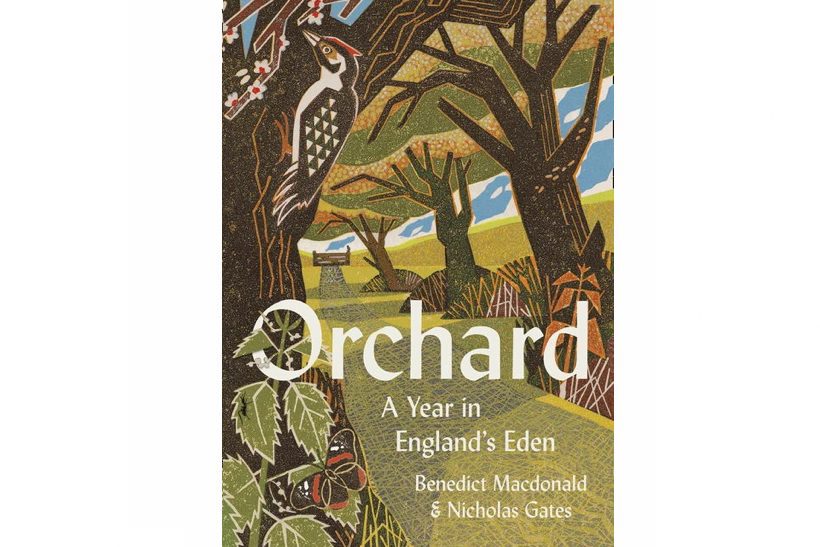Is the traditional orchard one of the most valuable havens for wildlife? Alex Roddie’s review of Orchard reveals a powerfully-argued book with a fascinating premise.
Orchard: A Year in England’s Eden by Benedict Macdonald and Nicholas Gates is a book about an unexpected stronghold for nature in the English countryside, but it’s really about much more than that: wonder, hidden knowledge, fragility. This beautifully written and presented book starts with a map of a traditional ancient orchard near the Malverns. The map, which looks like something from a fantasy novel, sets the tone for the story to come, emphasising the orchard’s status as a concealed world still partly governed by natural processes.
We may think of forests and other wild areas as the country’s most nature-rich habitats, but this book sets out a strong case for the traditional orchard as one of the most valuable havens for wildlife – as well as one of the most threatened. Most orchards are chemical-soaked deserts that have more in common with intensive agriculture than with wildlife habitat. Decades ago, as traditional orchards faded into economic irrelevance, many of them were grubbed up, and the complex webs of life that depended on them faded away. But the authors stumbled upon a patch of paradise in the English countryside: a large traditional orchard filled with ancient fruit trees and greater biodiversity than can be found in most nature reserves. No chemicals had been used since the 1930s, and it ‘protects, within its boughs, an ark of animals now almost impossible to find living side by side elsewhere in our dying countryside.’ A single tree is shown to support 40 species of bird. Over the course of a year, with the blessing of the owners, the authors returned many times and documented the wealth concealed within.
Orchard is a book stuffed with obscure and fascinating orchard lore, from the predatory habits of woodpeckers to the secret lives of stag beetles. The first section of the book is a fascinating lesson on the ecological history of apple trees and orchards – how now-extinct megafauna transported forests vast distances across continents. The description is as rich and vivid as you’d hope, alive with birdsong, the chirp of insects, and a thousand fluttering bats.
In some respects this book feels like an extension of the message Macdonald communicated in his 2019 book Rebirding, in which he set out his manifesto for landscape-scale restoration of bird habitats in a way that also benefits people and rural communities. The authors call for a more sympathetic kind of farming with scruffy margins, no chemicals, and room for wildlife. It’s a compelling vision, but back here in the present the situation is stark: even in this oasis of an orchard, there are losses and declines, and there can be no getting away from the fact that it’s an isolated place living on borrowed time. The authors ask themselves ‘So are we, in truth, studying a dead habitat – a museum? Is this just a foray of curiosity? A waste of time?’ For me, the answer is no. This book is not only a work of art in its own right, it’s a tribute to a vanishing way of life that most of us know far too little about.
Orchard: A Year in England’s Eden by Benedict Macdonald and Nicholas Gates (William Collins, £20, hardback)







